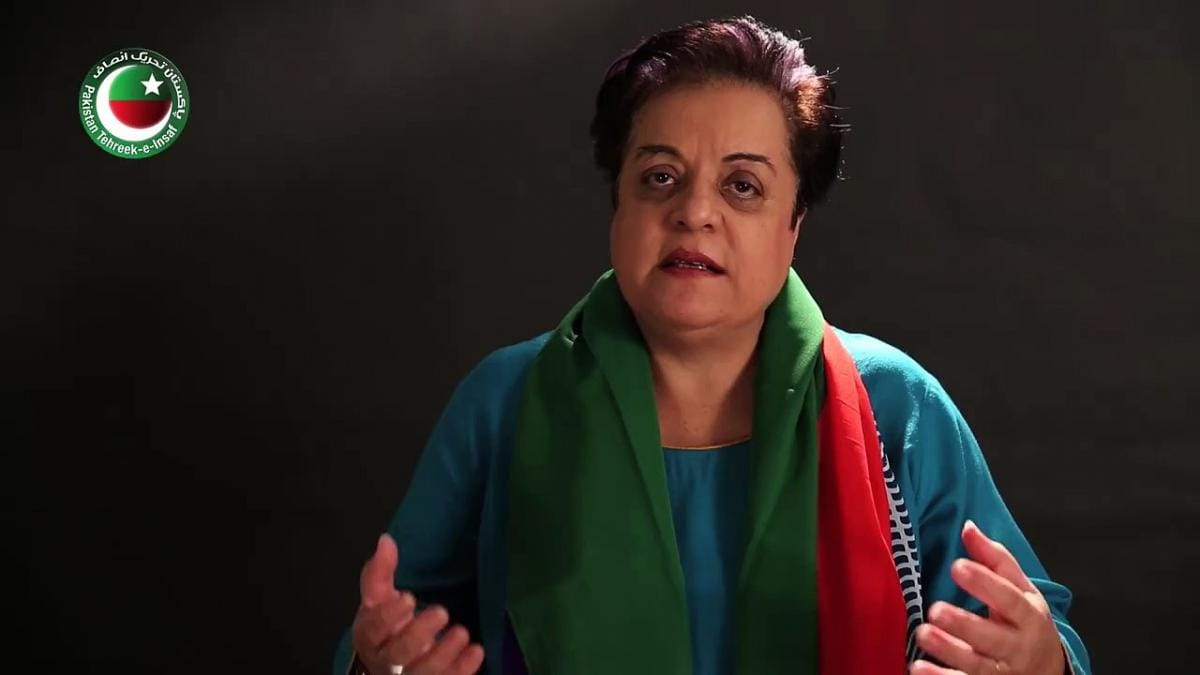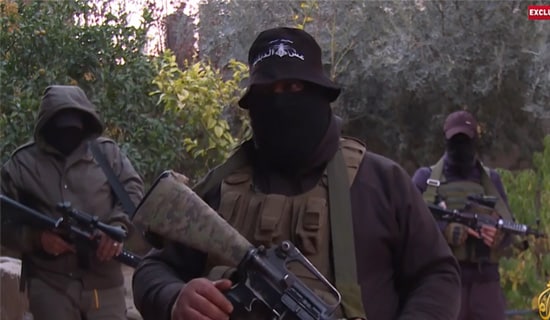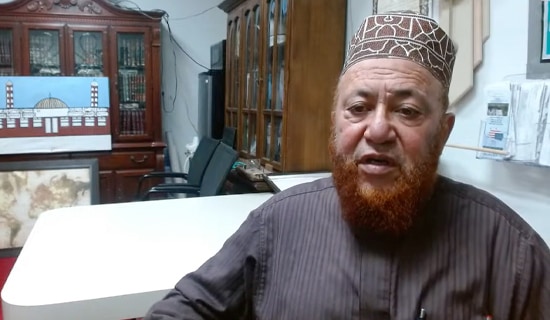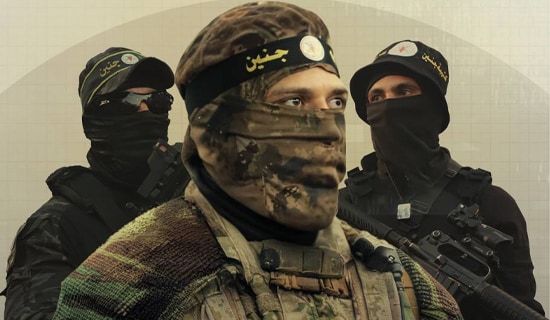Shireen M. Mazari is the federal minister of human rights in the government of Prime Minister Imran Khan of Pakistan, who took office on August 18, 2018. Mazari has been a defense issues analyst, columnist, editor, lawmaker, and director general of the Strategic Studies Institute in Islamabad. She is a key leader in Imran Khan's Pakistan Tehreek-i-Insaf (PTI) party. This dispatch traces her views on Iran, America, and Israel.

Former editor and now minister Shireen Mazari.
"Pakistan Cannot Afford To Alienate Iran"
In April 2017, a Pakistani blog post, titled "Is Shireen Mazari trying to spread Iranian influence in Pakistan?" observed: "Now there is only one person [Shireen Mazari] who is vehemently working against [Pakistan's pro-Saudi policy] and the person is part of a party [PTI] which has a case of foreign funding from Indians and Jews and still trying to hide behind the constitutional nitty gritty instead of providing the details to ECP [the Election Commission of Pakistan]."[1]
The blog's argument about foreign funding followed allegations in the Pakistani press by one of PTI's founding members, Akbar S. Babar, that the Imran Khan-led party had received funds from Jewish and Indian lobbies in the United States, especially from American Barry C. Schneps and U.S.-born Indian Indur Dosanjh.[2]
At a seminar in 2014, Shireen Mazari, who at the time was PTI's information secretary, criticized Pakistan's pro-Saudi stance on Iran, Syria, and Bahrain, saying: "Pakistan should seek cordial relations with all neighboring countries, including Iran. Pakistan cannot afford to alienate Iran. The present government [led by then Prime Minister Nawaz Sharif] has suddenly developed a new policy on Syria and Bahrain."[3]
She added: "The U.S. always speak[s] about promoting democracy but it supports an entirely different policy in the Middle East. We should review our foreign policy, as Saudi Arabia is acting on a specific [American] agenda. Pakistan should not become a party in this agenda and we should establish cordial relations with all neighbors like India, Iran, and Afghanistan."[4]
"Iran Has Been The Balancer Against The U.S. Movement For Its New Imperialist Designs Against The Muslim World"

A map, tweeted by Shireen Mazari, showing Iran surrounded by U.S. military bases.
In April 2018, Shireen Mazari, then a member of Pakistani parliament, told a seminar in Islamabad: "Iran has been the only power in the region that was able to withstand the new force of American imperialism."[5] She criticized "the whole drama of bringing democracy to the Arab states" and said: "Then we saw total disintegration of the strong non-monarchical nationalists but autocratic Arab states beginning with Iraq, Egypt, Libya, and wherever you look all those states that have been autocratic but non-monarchical were step by step made to disintegrate."[6]
"[I]n this mayhem and chaos the only country that stood against American power was Iran," she said, adding: "The design that the U.S. was implementing was withstood by Iran."[7] Shireen Mazari criticized the Pakistani stance on the Saudi-led military alliance against Yemen, asking: "[I]f this alliance is against terrorism, then why has one of the countries that was fighting terrorism across the Muslim world, especially Daesh [Islamic State, or ISIS], that is, Iran, not been included in the alliance?"[8]
The lawmaker said: "A lot of questions are hanging on Pakistan's role when the threat is coming closer to home," and added: "Iran has been the balancer against the U.S. movement for its new imperialist designs against the Muslim world and with the arrival of John Bolton, both Iran and Pakistan will come under threat."[9]
"What Should We Have Done? At The Very Least Ensured That The U.S. Embassy [In Islamabad] Is Reduced To A Reciprocal Size"
Mazari observed in a July 28, 2016 column: "[When compared with Pakistan] economically weaker and physically smaller states like Cuba have asserted their self-respect and dignity across continents while being visibly threatened by an aggressive imperial United States of America – barely 100 miles away from its shores and occupying a piece of Cuban territory in the form of Guantanamo Bay."[10]
"Today, here we are in Pakistan being abused at will by the U.S.; by our large neighbor India; by our weak and smaller neighbour Afghanistan..." she said, noting that in the past: "We also defied the U.S. and acquired our nuclear capability despite being the most sanctioned-against state."[11] She added: "What should we have done? At the very least ensured that the U.S. Embassy [in Islamabad] is reduced to a reciprocal size instead of becoming the largest CIA/military contractors' base in the world; perhaps stopped giving access to every Congressman who lands up in Islamabad."[12]
On May 9, 2018, about four months before she became Pakistan's federal minister, Shireen Mazari tweeted a map marking locations of U.S. military bases in the Middle East to make the point the bases surrounded Iran. Along with the image, she wrote: "US mly bases around Iran: If this map [see above] is correct then Pak govts have been lying to nation by denying US has any base on Pak soil and our media has been silent signalling a passive complicity perhaps?"[13]
Earlier in March 2018, Shireen Mazari, speaking as a lawmaker and as director general of the Islamabad-based Strategic Studies Institute, accused the Pakistani government of miscalculating its relationship with the U.S. She said: "Pakistan has been acting against its own interests in the region just to serve the U.S., and this should come to an end now... The rise of India as a regional power, the isolation of Iran and the containment of China are the major U.S. interests in South Asia... Our national interests did not converge with the interests of the U.S... America can never be a natural strategic ally to Pakistan."[14]
"How Does Pakistan Ensure That The U.S. Covert Operatives Coming In Without Observing Any Immigration Formalities Are Not Also Israeli Citizens? After All, Many Travel On Non-Israeli Passports"
In 2009, Shireen Mazari became the editor of The Nation daily. In a column, she wrote an analysis of the emerging Israel-India relations, noting: "Post-9/11 the Israeli factor has always covertly been present in Afghanistan because Israel was one of the first countr[ies]... to move into the Central Asian states energy sector after the demise of the Soviet Union... Israel has been a major contributor to India's defense profile, including cooperation in defense production."[15]
She noted: "[Then came] the $1.1 billion contract between India and Israel... for an upgraded air defense system for India. The system, produced by Israel, is designed for naval use, aboard ships, and can shoot down incoming missiles, planes, and drones. This will add to India's missile defense capability, thereby further destabilizing the nuclear balance in South Asia. So clearly Pakistan will have to add to its nuclear delivery systems and warheads..."[16] She added: "Through this deal Israel will get more naval access through India in the immediate vicinity of Pakistan and Iran. At any future date, it will make it much more feasible for Israel to target Iran from the sea."[17]
Shireen Mazari called for "simply improving our strategic dynamics with Iran" in order to check what she called the "Israel factor" and noted: "How does Pakistan ensure that the U.S. covert operatives coming in without observing any immigration formalities are not also Israeli citizens? After all, many travel on non-Israeli passports. How do we know that our information sharing with the U.S. is not travelling to New Delhi and Tel Aviv?"[18]
[1] CriticwithLogic.wordpress.com, April 4, 2017. The original English of quotes used in this report has been lightly edited for clarity and standardization.
[2] The Express Tribune (Pakistan), October 4, 2015.
[3] Shiitenews.com, March 31, 2014.
[4] Shiitenews.com, March 31, 2014.
[5] Iran-daily.com (Iran), April 4, 2018.
[6] Iran-daily.com (Iran), April 4, 2018.
[7] Iran-daily.com (Iran), April 4, 2018.
[8] Iran-daily.com (Iran), April 4, 2018.
[9] Iran-daily.com (Iran), April 4, 2018.
[10] The News (Pakistan), July 26, 2016.
[11] The News (Pakistan), July 26, 2016.
[12] The News (Pakistan), July 26, 2016.
[13] Twitter.com/ShireenMazari1, May 9, 2018.
[14] Arabnews.com (Saudi Arabia), March 19, 2018.
[15] Nation.com.pk (Pakistan), November 11, 2009.
[16] Nation.com.pk (Pakistan), November 11, 2009.
[17] Nation.com.pk (Pakistan), November 11, 2009.
[18] Nation.com.pk (Pakistan), November 11, 2009.





